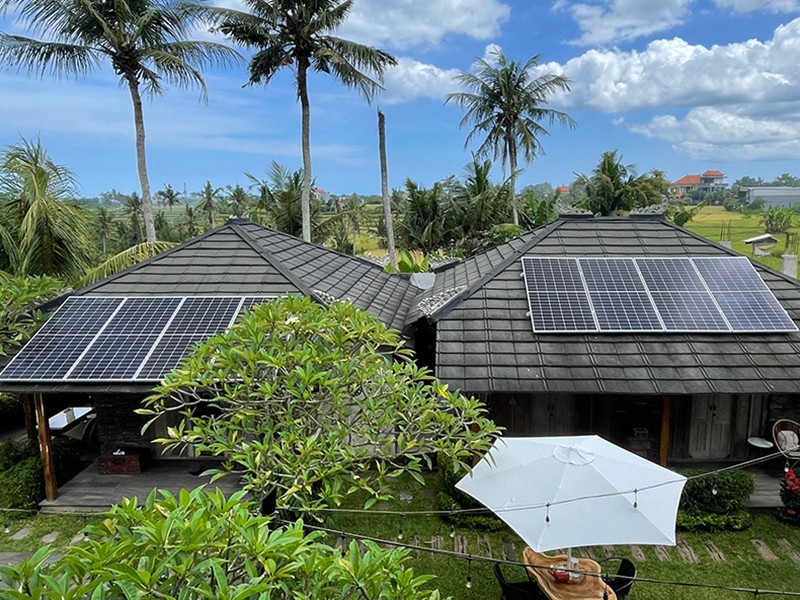Kategorien
Neuer Blog
Stichworte
Bali: Förderplan für Photovoltaik auf Hausdächern gestartet, öffentliche Gebäude müssen Photovoltaik installieren
Jun 11, 2025Um die lokale Energienutzung zu fördern und Energieunabhängigkeit zu erreichen, hat Bali, Indonesien, offiziell ein Photovoltaik-Dachprojekt , mit dem Ziel, den Einsatz verteilter Solarenergiesysteme in Regierungsbehörden, öffentlichen Einrichtungen und Gewerbegebieten zu beschleunigen.

Kürzlich gab I Wayan Koster, Gouverneur der Provinz Bali, der Verwaltungsregion, in der Bali liegt, offiziell den Start der „Initiative zur Beschleunigung der Sozialisierung von Photovoltaik-Dachkraftwerken in der Provinz Bali“ bekannt. Er sagte: „Alle Provinz-, Gemeinde- und Kreisbehörden müssen Photovoltaik-Dachanlagen nutzen, und alle Hotels, Villen, Schulen, Universitäten und Märkte müssen sie ebenfalls installieren.“
Der Plan ist ein zentraler Bestandteil des balinesischen Ziels „Netto-Null-Emissionen im Jahr 2045“, das im Juli 2023 gemeinsam von der Provinzregierung Balis und dem indonesischen Think Tank für Energiepolitik – Institute for Basic Services Reform (IESR) – initiiert wurde.
Laut der IESR-Bewertung beträgt Balis gesamtes Photovoltaik-Stromerzeugungspotenzial bis zu 22 GW, wovon das Potenzial für den Ausbau von Photovoltaikanlagen auf Hausdächern zwischen 3,3 und 10,9 GW liegt. Die aktuelle Auslastung liegt jedoch noch unter 1 %. Die IESR fordert Bali auf, dem Einsatz von Photovoltaikanlagen auf Hausdächern mit Energiespeichersystemen (BESS) Priorität einzuräumen. Dies ist derzeit der schnellste und kostengünstigste Weg, die Energieversorgung auf der Insel zu verbessern und die Energiesicherheit zu gewährleisten. Gleichzeitig wird die Abhängigkeit von Übertragungsleitungen auf der Insel Java verringert. Derzeit werden etwa 25 bis 30 % des Stroms auf Bali über Unterseekabel von Java bezogen.
Fabby Tumiwa, Geschäftsführer des IESR, betonte: „Die Kombination aus Photovoltaik auf Dächern und Energiespeichersystemen kann nicht nur den Anstieg des Strombedarfs nach der Epidemie decken, sondern auch den Druck auf das staatliche Energieversorgungsunternehmen verringern, die Stromversorgung zu erhöhen.“
Gemäß den nationalen Energieentwicklungszielen Indonesiens wird das Land bis 2040 seine Stromerzeugungskapazität um 100 GW erweitern. Davon entfallen 75 GW auf die Stromerzeugung aus erneuerbaren Energien und 27 GW auf die Photovoltaik.